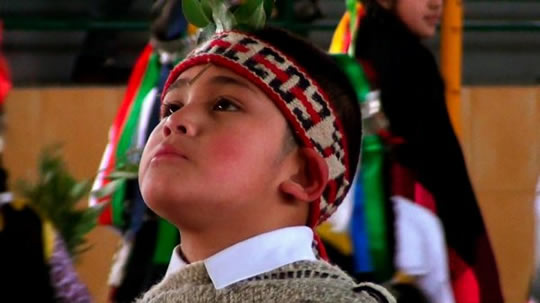




Despite the passing of a new anti-discrimination law in Chile, activists remain skeptical as to how much it will benefit the Mapuche community, who remain victims of oppression and discrimination.
Below is the UNPO English translation of the article "Mapuche indianen juichen niet om antidiscriminatiewet" published by MO*:
Seven years after its proposal, the anti-discrimination law in Chile has finally been approved. Nevertheless, there are still doubts as to whether or not the Mapuche community will benefit from this law. Chile remains completely silent when it comes to the dubious anti-terrorism law and the violence with impunity by the police.
The new law seems to be promising for the Mapuche and other minority groups in Chile. Last Thursday [12 July 2012], President Sebastián Piñeras signed the anti-discrimination bill into law during a ceremony at the government’s palace. This new law punishes every form of exclusion, discrimination or limitation on the grounds of race, skin colour, sexual orientation, religion, ideology or appearance. A violation of this law can result in fines ranging from €304 to €3040.
The anti-discrimination law was finally passed after a deadly incident of homophobic violence. In March 2012, a 24-year old man was abused by neo-Nazis as a result of his sexual orientation, with his subsequent death resulting from this abuse. Seven years after it had been proposed, the process of approving the law was accelerated as a result of this incident.
It is not the first time that President Piñeras stressed the importance of the protection of minority groups. On the National Festival for Indigenous Peoples on 26 June [2012], he declared that ‘the state has a debt to pay to the indigenous peoples of Chile’ and that ‘the current government will make legal changes regarding this issue.’ He also admitted that there are political shortcomings in addressing the needs of indigenous communities. The anti-discrimination law seems one step in the right direction.
Ana Piquer, director of Amnesty International in Chile does not believe the words of the president. ‘We keep on criticizing the way the Chilean state treats its indigenous peoples. As long as Chile keeps on criminalizing the Mapuche by means of the anti-terrorism law and as long as violent police officers are acquitted by the military court, there is no positive message according to us.’ This was mentioned on the website of the university radio of Chile.
Another consideration is that the opinions around the discrimination of the Mapuche are very diverse. A study by the Research Institute of Social Sciences of the University of Diego Portales in Santiago showed that there is no parliamentary consensus on this matter. According to the left there is definitely discrimination of the Mapuche, while the right insists that this is not the case. If a Mapuche wants to denounce a case of discrimination, it all depends on the judge and if he or she considers the incident to be lawful discrimination, before sanctions can take place.
José Venturelli, spokesperson of the Ethical Commission against Torture in Chile, stresses in his blog about the fact that the good intentions of the government are as good as non-existent. ‘Piñeras claims to be worried about the rights of the Mapuche, but at the same time the Attorney General Sabas Chahuán encourages so-called farmers to defend themselves with weapons against the Mapuche. Chahuán declared on the Chilean radio Bio Bio that the fact that these farmers can claim their rights through violence is a good trend. According to him it is a legal form of self-defense.’
Source: UNPO